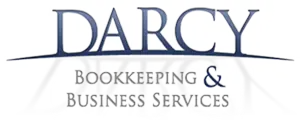


Tax planning is a legitimate way to try to reduce the amount of tax you pay and increase your tax deductions by making use of investments, tax exemptions, rebates and benefits as much as possible.
Tax planning is not the same as tax avoidance. Tax avoidance involves the deliberate exploitation of the tax and superannuation systems and is illegal. Tax avoidance typically involves not declaring your full taxable income, incorrectly classifying revenue as capital, illegally increasing deductions, etc.
Tax planning saves you money and leaves you with more cash at your disposal and it enables you to see more clearly where your money is going.
Tax planning helps you to know how your business is currently performing and if your business is on track to achieve your short-term and long-term goals. If there are any areas of concern you can make the necessary financial decisions to put your business back on track. Key questions tax planning can answer are:

Tax planning can create significant savings for your business. There are numerous strategies at your disposal which can help you reduce and manage the amount of tax you pay. Some of the main ones are:
One of the easiest things you can do is to consider postponing invoices until the next financial year, if appropriate. This shifts the taxable income from those invoices to the following year.
You can also prepay some of the expenses you expect to incur in the following financial year so you can deduct those expenses in the current tax year. You are allowed to claim a tax deduction for prepayments made for an advance period of up to 12 months.
The Australian Tax Office (ATO) allows you to claim deductions for income that cannot be recovered by writing off debt. Note that writing off debt is not the same as waiving or forgiving debt. There are different tax consequences for waivers and there may also be tax consequences for the debtor.
When you write off a debt you can only claim deductions for amounts which you have included in your assessable income. You must put this decision in writing before the end of the tax year which you can use as evidence that the debt was written off. The ATO has very specific procedures for how to do this which your accountant will be able to help you with.
Business owners can generally claim tax deductions for superannuation contributions made to comply with super funds. You can reduce your tax by topping up superannuation contributions and paying concessional super contributions which are taxed at a rate of 15% in the superfund. From 1 July 2021, the concessional contributions cap is $27,500. Because this tax rate is lower than the income tax rate, you would benefit from making contributions up to that limit before the end of the financial year if you are able to.
By paying superannuation liabilities you can also obtain a deduction a year earlier. This will increase cash flow and flexibility in your budget.
The ATO allows businesses to claim tax concessions on the depreciation of assets. For example, if your business has a turnover of less than $5 billion, you can deduct the business portion of the cost of eligible new depreciating assets. If your business has an aggregated turnover of less than $50 million, temporary full expensing also applies to the business portion of eligible second-hand depreciating assets. If you have a small business, the ATO also has simpler depreciation rules. (See the ATO website for details).
These rules are complex so it is worth speaking to an accountant who has the expertise to know what and how your business can claim asset deductions.
Every business has waves of cash highs and lows, as cash comes in with sales and cash, flows out by paying wages, suppliers, utilities, insurance, and other bills. A large tax bill can put a lot of financial pressure on a business. By keeping in mind your tax payment dates you can plan ahead and set the money aside you anticipate you will need. This will ensure you are not left short of cash for the running of your business and you can avoid late fees and other problems caused by late tax payments.
Your accountant can help you with tax planning strategies that will optimise the tax position for your business. In Addition we have a lot of articles discussing specific topics around tax planning. You can continue to browse these topics below:
